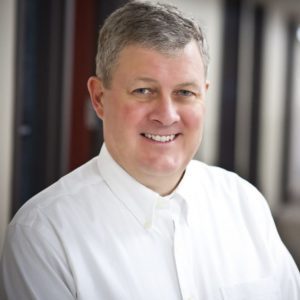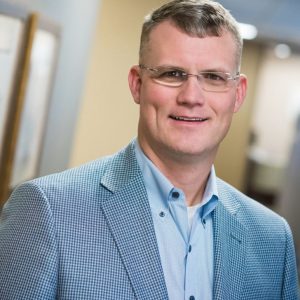The Small Business Administration (SBA) released on December 9, 2020 its latest FAQ on the Paycheck Protection Program (“PPP”) loan.
Background
 The PPP loan was one of the key provisions within the CARES Act legislation designed to assist small businesses with maintaining payroll and other costs during the pandemic. A significant feature of the PPP loan was the opportunity for borrowers to have these loans forgiven.
The PPP loan was one of the key provisions within the CARES Act legislation designed to assist small businesses with maintaining payroll and other costs during the pandemic. A significant feature of the PPP loan was the opportunity for borrowers to have these loans forgiven.
Since the establishment of this loan, the SBA has periodically issued PPP guidance to assist borrowers and lenders dealing with this new program. Back in May, the SBA announced that borrowers would need to show economic uncertainty at the time they applied for their loan, if they took a PPP loan of $2 million or more. Per the CARES Act legislation, the PPP loan application states that “current economic uncertainty makes this loan request necessary to support the ongoing operations of the Applicant.”
The SBA provided limited guidance following its announcement on this $2 million threshold, and borrowers with larger loans wondered what additional scrutiny they would thus encounter. Then, in late October, the SBA quietly unveiled two new forms for borrowers, Form 3509 (for for-profit businesses) and Form 3510 (for not-for profit entities). These forms were described as “Loan Necessity Questionnaires.”
New FAQ from the SBA
After these questionnaires were made available, the SBA offered no comments or discussion. In fact, the forms were not even available on the SBA’s website until this week. Finally, the SBA broke its silence with FAQ #53 issued on December 9, 2020. Here’s a breakdown of what this FAQ provides:
- The SBA reiterates that borrowers have ten days to submit Form 3509 or 3510 once they receive it from their lender.
- In the FAQ, the SBA explains the significance of the questionnaire. They indicate that the “request to complete the Loan Necessity Questionnaire does not mean that SBA is challenging a borrower’s certification that is required by the CARES Act. SBA’s assessment of a borrower’s certification will be based on the totality of the borrower’s circumstances through a multi-factor analysis.”
- The SBA also highlights the importance of conditions present at the time the borrower applied for its PPP loan and not events that unfolded after the loan application. Yet, the questionnaire requests information from the borrower that transpired after the loan application. The SBA offers this rationale: “This certification is required to have been made in good faith at the time of the loan application, even if subsequent developments resulted in the loan no longer being necessary. In its review, SBA may take into account the borrower’s circumstances and actions both before and after the borrower’s certification to the extent that doing so will assist SBA in determining whether the borrower made the statutorily required certification in good faith at the time of its loan application.”
- Next, the SBA may request additional information from the borrower after they submit their questionnaire. This is part of the SBA’s overall review process. The FAQ states, “when additional information is requested, borrowers will have an opportunity to provide a narrative response to SBA explaining the circumstances that provided the basis for their good-faith loan necessity certification. SBA will make a final determination that a borrower lacked an adequate basis for its loan necessity certification after reviewing any additional information that a borrower chooses to submit.”
- As noted, the borrower will have the opportunity to also submit a narrative to the SBA to justify their need for the PPP loan and explain the economic uncertainty they faced at the time they applied for the loan. The SBA clarifies this narrative will be part of the overall review process conducted by the SBA for each borrower.
Sikich has already worked with borrowers on these narratives and is available to assist you in developing a narrative to organize and document the loan necessity that existed when you applied for your PPP loan.
Outlook
With the release of this FAQ, the SBA acknowledges the existence and use of the new questionnaires, Form 3509 and 3510. It further provides the SBA’s motivation for these forms and what they are looking for. Nonetheless, some borrowers and trade associations are still not pleased with the post-application information requested by the SBA in these questionnaires. They have objected to both the SBA and Congress.
As a result, we will continue to monitor these developments. Please contact your Sikich advisor with any questions.
About our authors

Jim Brandenburg
Jim Brandenburg, CPA, has extensive experience and knowledge in corporate and partnership tax law, mergers and acquisitions and tax legislation. His expertise includes working with owners of closely held businesses to identify tax planning opportunities and assist them in implementing these strategies.

Glen Birnbaum
Glen Birnbaum, CPA, ABV, ASA, CVA, CM&AA, is a partner with over 20 years of experience valuing closely held businesses. Glen provides expert accounting and tax advisory services for a range of entities, including those in the agriculture, manufacturing and construction industries. He excels in delivering tax and succession planning services to his clients, who value his commitment to strengthening their businesses.

Tom Bayer
Thomas E. Bayer, CPA, CExP, has more than 25 years of experience providing a broad range of accounting, tax, and business advisory services to commercial clients across various industries and Sikich offices. Tom has specialized expertise in the areas of business succession planning, tax planning and compliance, and business advisory. He puts his business succession planning abilities and knowledge to work firm-wide, serving clients in advisory services across the country.

Sylesh Babu
Sylesh Babu, CPA, CFE, ACA, DipIFR, is a partner in the company’s audit and assurance practice. Sylesh has nearly 30 years of experience providing accounting and audit solutions, with extensive knowledge in addressing challenges facing clients in manufacturing & distribution, business and professional services industries such as engineering, law, staffing and IT consulting services. In his role, he offers financial statement audit, review and compilation services as well as agreed upon procedures, due diligence, forensic and consulting services to businesses.




